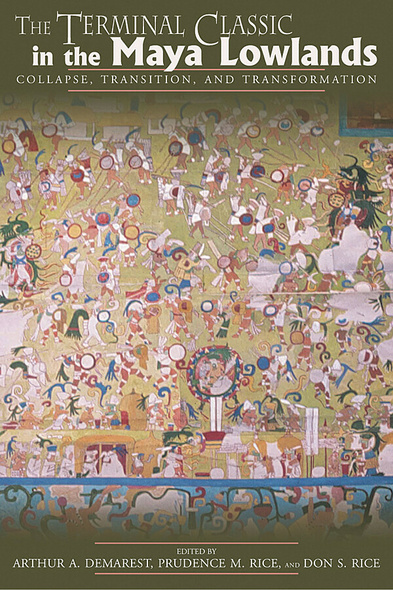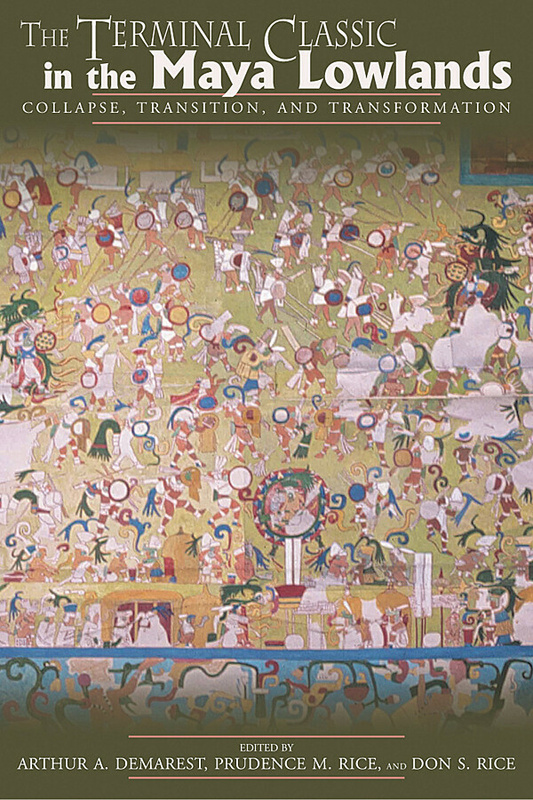The Terminal Classic in the Maya Lowlands
Collapse, Transition, and Transformation
University Press of Colorado
The Terminal Classic in the Maya Lowlands revisits one of the great problems in Mayan archaeology - the apparent collapse of Classic Maya civilization from roughly A.D. 830 to 950. During this period the Maya abandoned their power centers in the southern lowlands and rather abruptly ceased the distinctive cultural practices that marked their apogee in the Classic period. Archaeological fieldwork during the past three decades, however, has uncovered enormous regional variability in the ways the Maya experienced the shift from Classic to Postclassic society, revealing a period of cultural change more complex than acknowledged by traditional models.
Featuring an impressive roster of scholars, The Terminal Classic presents the most recent data and interpretations pertaining to this perplexing period of cultural transformation in the Maya lowlands. Although the research reveals clear interregional patterns, the contributors resist a single overarching explanation. Rather, this volume's diverse and nuanced interpretations provide a new, more properly grounded beginning for continued debate on the nature of lowland Terminal Classic Maya civilization.
Detailed, comprehensive, and rightly labeled as a 'landmark' publication . . . [The Terminal Classic in the Maya Lowlands] can be favorably compared to Culbert's (1973) volume on the collapse. It will become the new baseline study on this crucial time period. . . . The Terminal Classic in the Maya Lowlands will prove to be an invaluable scholarly resource for not only Maya and Mesoamerican archaeologists but also for anyone intersted in the complexities of cultural devolution and decline.'
—American Anthropologist
... [T]he latest word on the Maya collapse, seen from the perspective of fifty-two well-known and active archaeologists. This is a big book and an important one...The book is significant for at least three reasons. First, the empirical data are important. Second, those data make it clear that no single cause can explain the complicated cultural-historical pattern of collapse, which extended over several centuries and diverse environments. The editors and many of the authors energetically and effectively argue that neither climate change nor ecological collapse can explain the bulk of the data. This volume is a timely and convincing refutation of the environmental explanations, especially drought, for the Maya collapse. Third, and less obviously, this book shows that more and better data do not necessarily resolve themselves into simple patterns.'
—Ethnohistory
Arthur A. Demarest is the Ingram Professor of Anthropology at Vanderbilt University.
Prudence M. Rice is Distinguished Professor Emerita in the Department of Anthropology at Southern Illinois University, Carbondale. She has authored, edited, or coedited nineteen books.
Don S. Rice is associate dean in the College of Liberal Arts at Southern Illinois University, Carbondale.
Prudence M. Rice is Distinguished Professor Emerita in the Department of Anthropology at Southern Illinois University, Carbondale. She has authored, edited, or coedited nineteen books.
Don S. Rice is associate dean in the College of Liberal Arts at Southern Illinois University, Carbondale.





